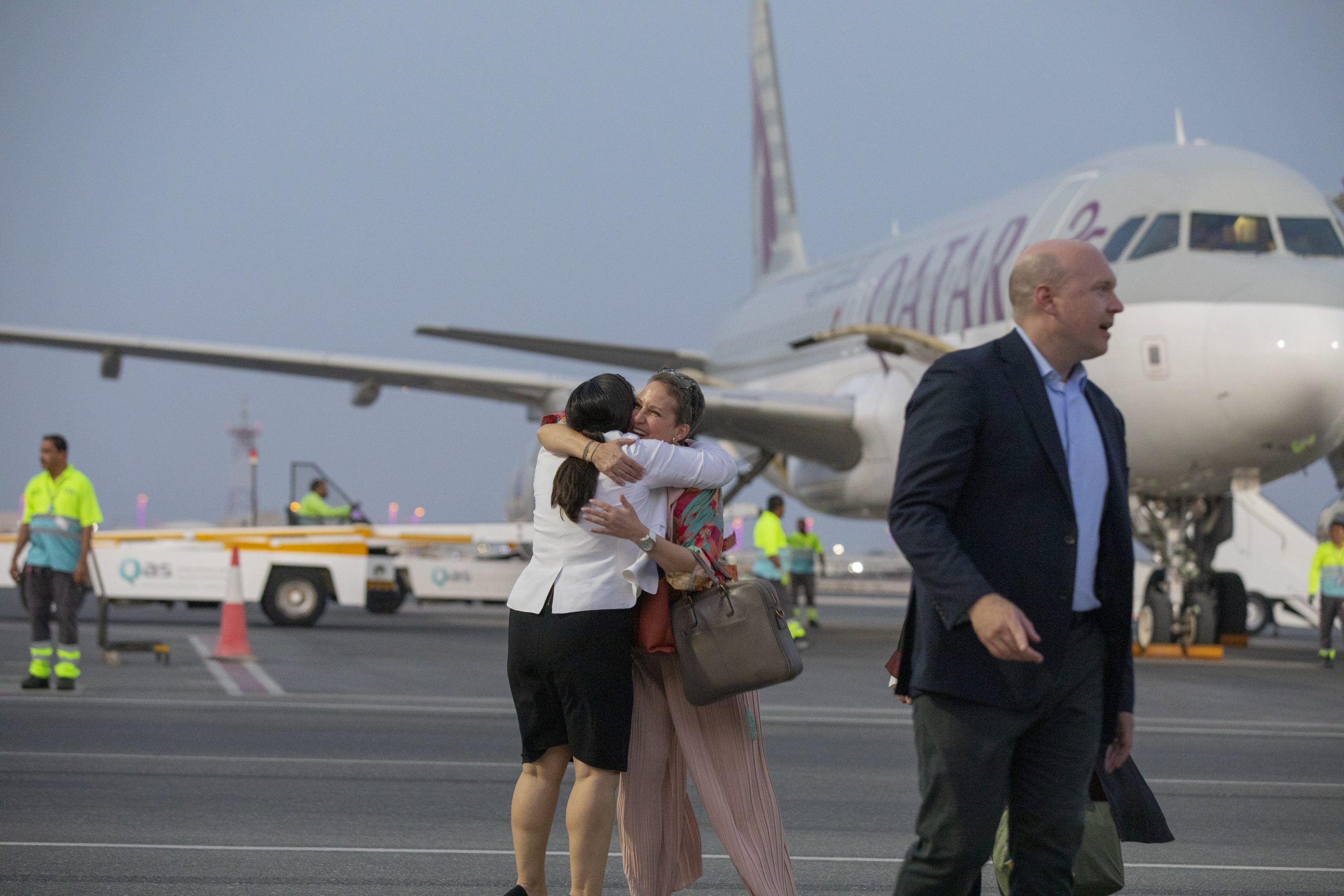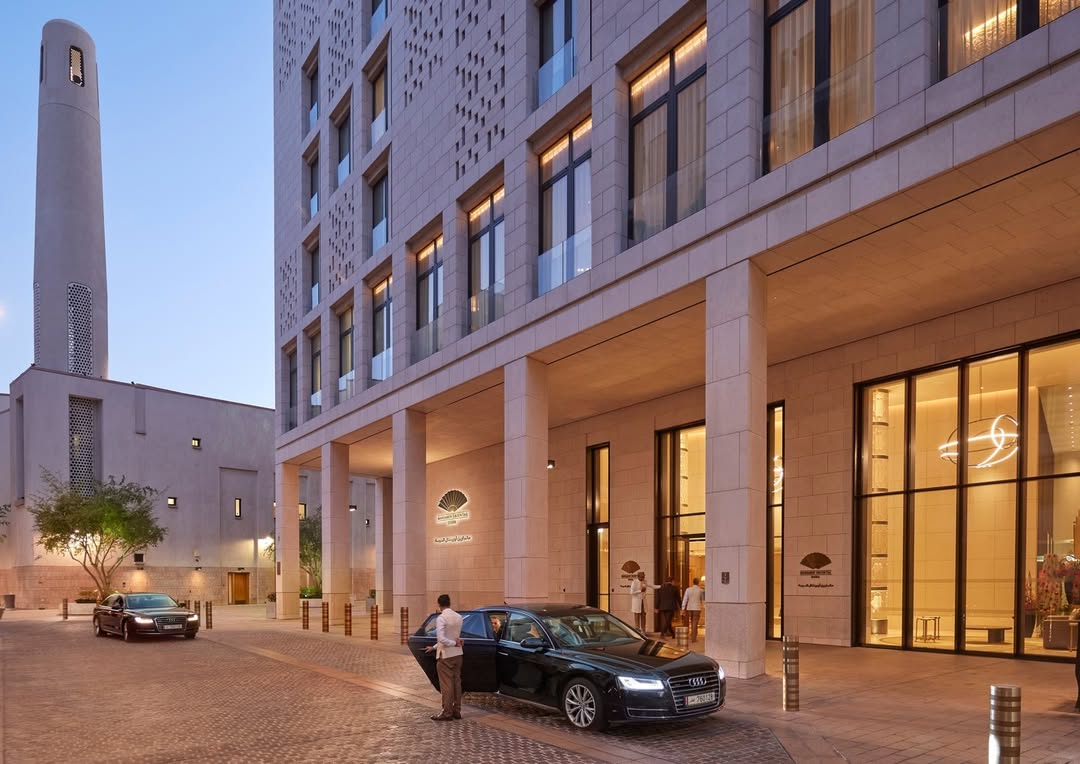While the outcome of this exchange constitutes a joyous occasion, it is difficult to imagine it having a major impact on the fundamental nature of Washington and Tehran’s hostile relationship writes Giorgio Cafiero
Five US citizens who had been detained in Iran—one of whom since as early as 2015—left the Islamic Republic to return home to America. Their release was secured in a Qatari-mediated deal first announced on August 10. This swap entailed the transfer of USD 6 billion worth of Iranian assets in South Korea to bank accounts in Qatar, and the freeing of five Iranians imprisoned in the US, mostly for sanctions violations—two of whom decided to return to Iran.
The freed US citizens included Siamak Namazi, Emad Shargi, Morad Tahbaz, and two others who remain unidentified. The Iranians held in the US who were granted clemency under this deal included Reza Sarhangpour, Kambiz Attar Kashani, Kaveh Lotfolah Afrasiabi, Mehrdad Moein Ansari, and Amin Hasanzadeh. For each of these people and their loved ones, this deal’s implementation is a joyous occasion, bringing an end to horrific episodes that they have had to endure. For average Iranians who have suffered under Washington’s cruel sanctions, there will be a small amount of economic relief with Iran’s USD 6 billion worth of crude oil revenue ceasing to remain stuck in South Korean banks.
But in Washington, where most Iran-related discourse is toxic and immature, not everyone welcomes this humanitarian deal. Hawkish Republicans, who oppose any easing of US pressure on the Islamic Republic, have predictably chosen to blast this swap as a sign of the Biden administration’s weakness toward Tehran. Michael McCaul, the Republican chairman of the House Foreign Affairs Committee, complained that Washington was transferring funds to “the world’s top state sponsor of terrorism” when addressing this controversial deal.
Nonetheless, securing these five US citizens’ release from imprisonment in Iran required the White House to make concessions to Tehran in one form or another. There was no way around it.
“Absent an arrangement to bring these people home, they would languish in one of the world’s worst prisons for many years to come,” Brett McGurk, the National Security Council’s coordinator for the Middle East and North Africa, explained to the Washington Post. “Some of our citizens had a potential death sentence hanging over them. All of them are now safely out of Iran. We recognise there will be criticism of the deal, but the president ultimately needs to weigh the terms available through diplomacy, against leaving American citizens for years, or even decades, in Evin Prison. In this case, the president made the hard decision to move ahead.”
All the criticism notwithstanding, President Joe Biden achieved a foreign policy victory that makes a huge difference for these families by bringing their nightmares to an end. Biden and his team will probably emphasise this point on the campaign trail between now and November 2024.
Qatar’s special capabilities
This outcome was made possible thanks to hard work by Qatari diplomats which started in February 2022. Delegations from the US and Iran took part in difficult and slow-moving negotiations held in hotels in Doha with high-ranking Qatari officials engaged in many back-and-forth visits between Washington and Tehran.
This prisoner swap illustrates Doha’s unique leverage on the international stage as a mediator and facilitator of agreements between parties, which for political purposes do not directly engage each other. Western countries engaging the Taliban in Afghanistan via Qatar is another example of Doha’s ability to navigate turbulent landscapes.
As a result of this US-Iran exchange, officials in Washington and Tehran will likely view Doha as even more of a reliable and credible diplomatic bridge that has earned the trust of many governments worldwide.
Impact on US-Iran Relations
A key question is, can the successful completion of this exchange lead to progress on the nuclear front 64 months after the Trump administration sabotaged the Joint Comprehensive Plan of Action (JCPOA)?
This author’s assessment is that there’s unfortunately not necessarily much reason to think so.
This controversial swap pertained to non-nuclear issues. The ability of the parties to implement it was in no small way made possible due to its delinking from the JCPOA file. While the outcome of this exchange constitutes a joyous occasion, it is difficult to imagine it having a major impact on the fundamental nature of Washington and Tehran’s hostile relationship.
Most likely, Iran will continue detaining US citizens in contexts that officials in Washington see as hostage taking while Washington will continue implementing fresh sanctions on the Islamic Republic throughout the future. In fact, on Monday an official in Washington stated that Biden’s administration would impose new sanctions on Iran’s intelligence ministry over the treatment of US citizens held in Evin Prison, as well as former president Mahmoud Ahmadinejad in connection to the Robert Levinson affair.
Meanwhile, we can expect the US and Iran along with their allies and “proxies” to continue clashing Middle Eastern hotspots such as Iraq and Syria against the backdrop of the US further militarising waters near Iran while the parties fail to revive the JCPOA.
However, Qatar and Oman will likely attempt to build on this breakthrough swap to try to help bridge gaps between the US and Iran on nuclear and non-nuclear issues which fuel high levels of tension between the two countries. What Doha has demonstrated with this Qatari-mediated agreement, and what Muscat has proven over the years, is that to the credit of both Qatar and the Sultanate these two Arabian Gulf states can use their resources and diplomatic energy to keep alive necessary communication and dialogue between Washington and Tehran.
Giorgio Cafiero is CEO and founder of Gulf State Analytics.
The views and opinions expressed in this article are those of the authors and do not necessarily reflect the official policy or position of Doha News, its editorial board or staff.







